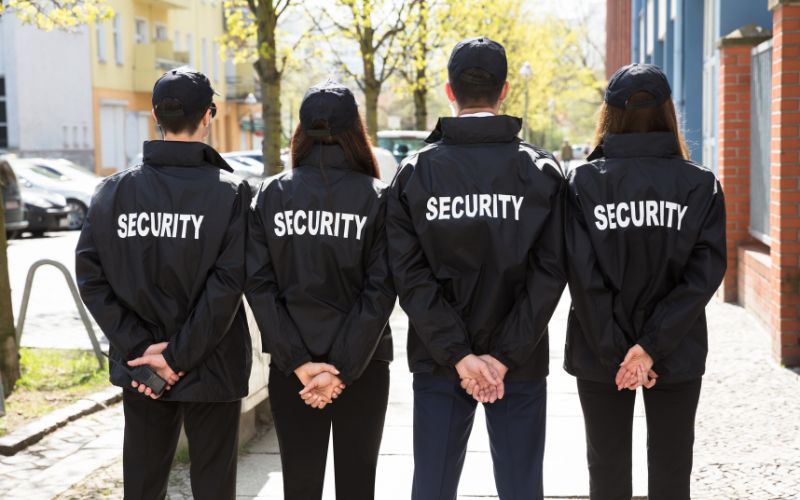In today's rapidly changing world, the demand for security professionals has never been higher. As businesses and individuals prioritize safety and protection, the role of security guards has evolved into a critical one. Whether you're considering a career change or aiming to enhance your skills in the security industry, choosing the right security guard course in Sydney is paramount to your success. With numerous options available, it's essential to navigate through the myriad of choices to find the one that best suits your needs and aspirations.
Security Guard Course in Sydney: Understanding Your Needs
Before diving into the selection process, take a moment to assess your goals and objectives. Are you looking to enter the security industry for the first time, or are you seeking to upgrade your existing qualifications? Understanding your needs will help you narrow down the plethora of security guard courses available in Sydney.
If you're new to the field, consider courses that provide comprehensive training in fundamental security principles, legal regulations, and practical skills. On the other hand, if you're already working as a security guard and aiming to advance your career, look for specialized courses that offer advanced training in areas such as crowd control, risk assessment, or surveillance techniques.
Accreditation and Licensing: The Key to Legitimacy
One of the most crucial factors to consider when choosing a security guard course in Sydney is accreditation and licensing. Ensure that the course you opt for is accredited by relevant authorities such as the Australian Skills Quality Authority (ASQA) or the Security Licensing & Enforcement Directorate (SLED). Accreditation ensures that the course meets industry standards and is recognized by employers across the country.
Additionally, verify whether the course leads to the necessary licensing required to work as a security guard in Sydney. Different states and territories have specific licensing requirements, so it's essential to choose a course that aligns with the regulations in New South Wales (NSW). Look for courses that offer support and guidance throughout the licensing process, including assistance with paperwork and exam preparation.
Curriculum and Course Structure: Beyond the Basics
A comprehensive curriculum is vital for gaining the knowledge and skills needed to excel in the security industry. When evaluating a security guard course in Sydney, delve into the course structure and syllabus to ensure that it covers a wide range of topics relevant to the field. A well-rounded curriculum should include modules on:
- Security laws and regulations
- Emergency response procedures
- Conflict resolution and de-escalation techniques
- Patrol and surveillance methods
- Report writing and documentation
- First aid and CPR training
- Customer service and interpersonal skills
Furthermore, consider the delivery format of the course. While some programs may be offered in traditional classroom settings, others may provide online or blended learning options for added flexibility. Select a format that suits your learning style and schedule.
Faculty Qualifications and Industry Experience
The expertise and experience of the faculty can significantly impact the quality of education you receive. When researching a security guard course in Sydney, take the time to investigate the credentials of the instructors. Look for courses taught by industry professionals with extensive experience in security management, law enforcement, or related fields.
Faculty members who have worked in the security industry bring real-world insights and practical knowledge to the classroom, enriching the learning experience for students. Additionally, inquire about the instructor-to-student ratio to ensure personalized attention and support throughout the course.
Hands-On Training and Practical Experience
While theoretical knowledge is essential, practical skills are equally crucial in the security profession. Look for courses that offer hands-on training and practical exercises to help you apply theoretical concepts in real-world scenarios. Practical training may include simulations, role-playing exercises, and site visits to various security environments such as retail stores, event venues, or office buildings.
Furthermore, seek opportunities for on-the-job training or internships as part of the course curriculum. Practical experience not only enhances your skills but also provides valuable networking opportunities and insights into the day-to-day responsibilities of a security guard.
Cost and Financial Aid Options
Cost is undoubtedly a significant consideration when choosing a security guard course in Sydney. Compare the tuition fees of different programs and weigh them against the value and quality of education provided. Keep in mind that higher tuition fees don't always equate to better quality, so research thoroughly before making a decision.
Additionally, explore financial aid options such as scholarships, grants, or government assistance programs that may help offset the cost of tuition. Some employers may also offer tuition reimbursement or sponsorship for employees pursuing further education in the security field.
Reputation and Reviews: Insights from Alumni
Finally, don't underestimate the power of word-of-mouth and online reviews when evaluating security guard courses. Reach out to alumni or current students of the course to gain insights into their experiences and satisfaction levels. Consider factors such as the course's reputation within the industry, job placement rates, and alumni success stories.
Furthermore, browse online forums, review websites, and social media platforms to read testimonials and feedback from past students. While a few negative reviews are inevitable, pay attention to recurring themes or issues raised by multiple reviewers.
Conclusion
Choosing the right security guard course in Sydney is a significant investment in your future career. By considering factors such as accreditation, curriculum, faculty expertise, practical training opportunities, cost, and reputation, you can make an informed decision that aligns with your goals and aspirations. Remember to take your time, research thoroughly, and choose a course that not only meets the requirements for licensing but also provides the knowledge and skills needed to thrive in the dynamic field of security.


No comments yet